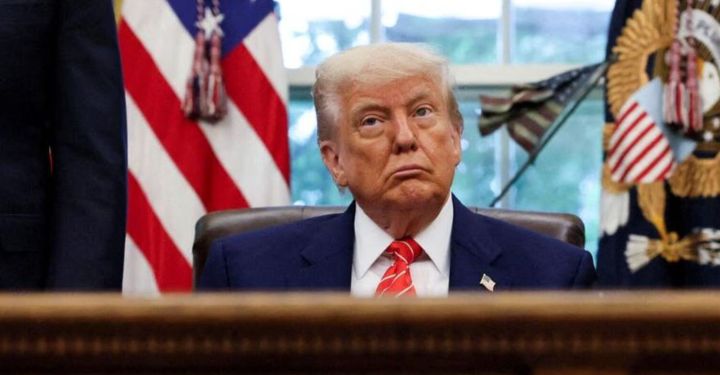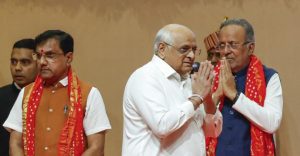Few international statements in recent years have generated as much backlash in India as former U.S. President Donald Trump’s unexpected offer to mediate the Kashmir dispute. Even more startling was Trump’s assertion that Indian Prime Minister Narendra Modi had personally requested him to do so—a claim India categorically denied within hours.
This diplomatic storm came at a time of heightened tension. Following a deadly terrorist attack in Pahalgam, Jammu and Kashmir, India blamed Pakistan-based militants and launched military operations in response. Just as the region edged toward a serious escalation, the U.S. stepped in to negotiate a ceasefire. But Trump’s controversial remark during a press conference with Pakistani Prime Minister Imran Khan shifted the narrative.
“I was with Prime Minister Modi, and he said, ‘Would you like to be a mediator?’” Trump told reporters. “I was surprised, but I said I would love to be a mediator.” This comment triggered immediate disbelief in New Delhi and drew a strong rebuttal.
India’s Ministry of External Affairs wasted no time: “No such request was made by Prime Minister Modi to President Trump.” The response was sharp, concise, and aimed at preserving India’s core diplomatic principle—no third-party mediation in Kashmir.
This position is rooted in history. The 1972 Simla Agreement between India and Pakistan states clearly that disputes shall be settled bilaterally. From India’s standpoint, foreign intervention—however well-intentioned—undermines this agreement and signals a loss of control over its own affairs.
The political reaction in India was swift and bipartisan. Both the ruling Bharatiya Janata Party (BJP) and opposition Congress Party spoke in one voice to reject Trump’s claim. Parliament was briefly adjourned amid uproar, with members demanding answers and reiterating that Kashmir is a sovereign issue.
In contrast, Pakistan reacted enthusiastically. Prime Minister Imran Khan welcomed the offer and praised Trump’s “genuine interest” in solving what he called “the most pressing issue” between India and Pakistan. For Islamabad, which has long pushed for international involvement, Trump’s words were seen as validation of their stance.
However, in the corridors of Washington, Trump’s comments sparked concern. Career diplomats at the State Department moved quickly to clarify the U.S. position, noting that any mediation would require the consent of both parties—something India clearly did not grant. The effort to control the diplomatic fallout underscored how disconnected Trump’s remarks were from traditional U.S. policy.
Indian Ambassador Harsh Vardhan Shringla later confirmed that Trump had walked back his remarks after New Delhi’s clarification. “He now understands that India does not welcome any third-party involvement in the Kashmir issue,” said Shringla, adding that the matter had been closed.
Still, the incident stirred public anger and suspicion within India. Social media exploded with criticism, and editorial pages questioned whether such a claim could have gone unchallenged had it not been made publicly. The fear was not just that Trump misspoke, but that such comments could erode India’s global image.
Foreign policy observers in India and abroad warned that even unintentional statements could have serious implications. “Trump’s remarks—whether miscommunication or exaggeration—highlight how diplomacy demands precision,” said Dr. C. Raja Mohan, a strategic affairs analyst. “Loose talk can undermine years of careful policy crafting.”
The bigger concern for India was the potential internationalization of Kashmir. Historically, India has been cautious to avoid turning Kashmir into a subject of global negotiation, wary that such exposure could empower separatist narratives or increase external pressure.
Pakistan, by contrast, has used every available forum—from the UN to the OIC—to bring attention to the Kashmir issue. Though it rarely results in tangible action, even symbolic support is considered useful in Islamabad’s playbook. Trump’s remarks, however brief, gave them a talking point.
Despite the brief diplomatic firestorm, the U.S.-India relationship has remained intact. Both nations value their strategic partnership too deeply to let one episode derail progress on defense cooperation, trade, and regional security. But the incident likely served as a wake-up call for India—highlighting the need for proactive narrative control in international diplomacy.
Ultimately, the episode reflects the deep sensitivities surrounding Kashmir, not just in India and Pakistan but also globally. It is a reminder that in regions fraught with historical trauma and geopolitical rivalries, words are not just words—they can shape policy, perception, and peace itself.





More Stories
U.S. Congress Warns Trump: Tariffs on India Risk Strategic Partnership
Under‑Construction Tower Collapses in Chennai, Nine Missing After Disaster
From Ice Stupas to Isolation: Sonam Wangchuk Detained Amid Ladakh Turmoil